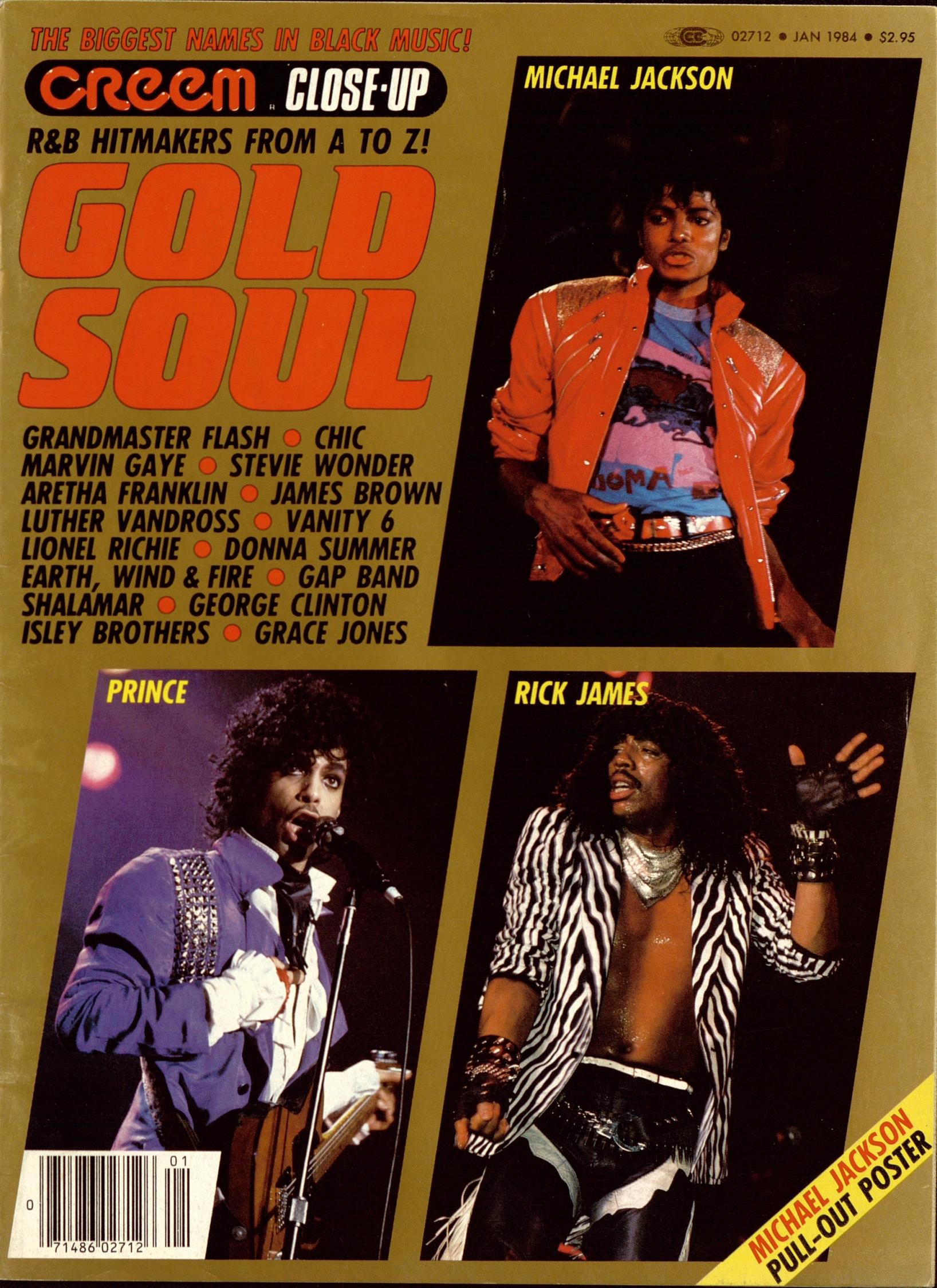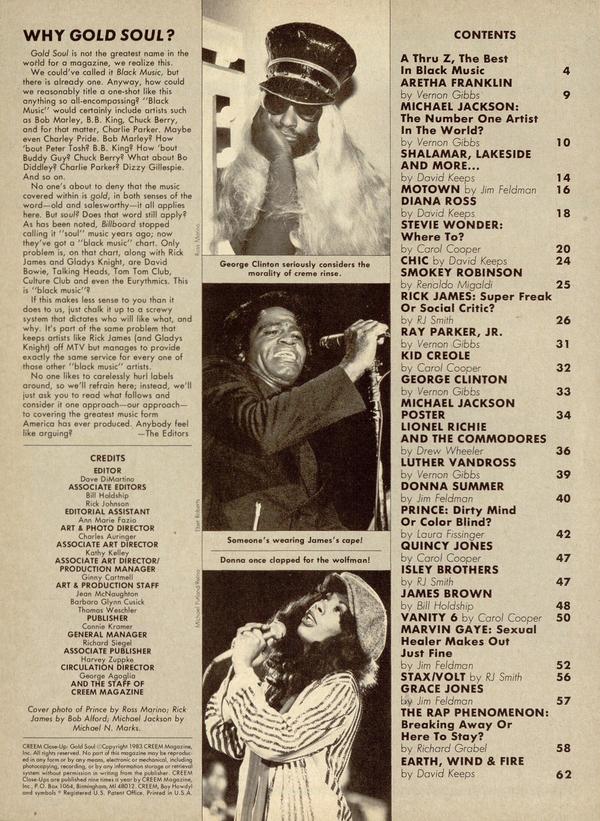
WHY GOLD SOUL?
Gold Soul is not the greatest name in the world for a magazine, we realize this. We could've called it Black Music, but there is already one. Anyway, how could we reasonably title a one-shot like this anything so all-encompassing? "Black Music" would certainly include artists such as Bob Marley, B.B. King, Chuck Berry, and for that matter, Charlie Parker.

CONTENTS
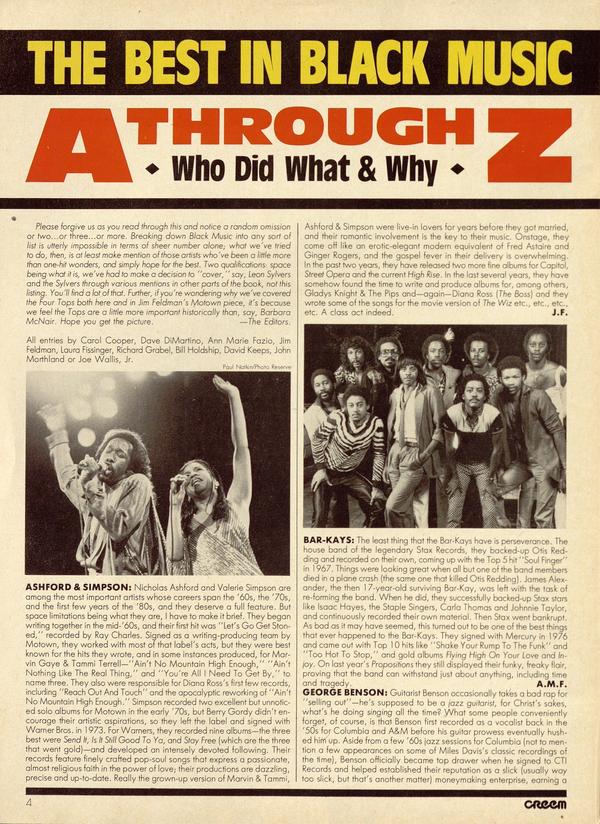
THE BEST IN BLACK MUSIC
All entries by Carol Cooper, Dave DiMartino, Ann Marie Fazio, Jim Feldman, Laura Fissinger, Richard Grabel, Bill Holdship, David Keeps, John Morthland or Joe Wallis, Jr. ASHFORD & SIMPSON: Nicholas Ashford and Valerie Simpson are among the most important artists whose careers span the '60s, the '70s, and the first few years of the '80s, and they deserve a full feature.
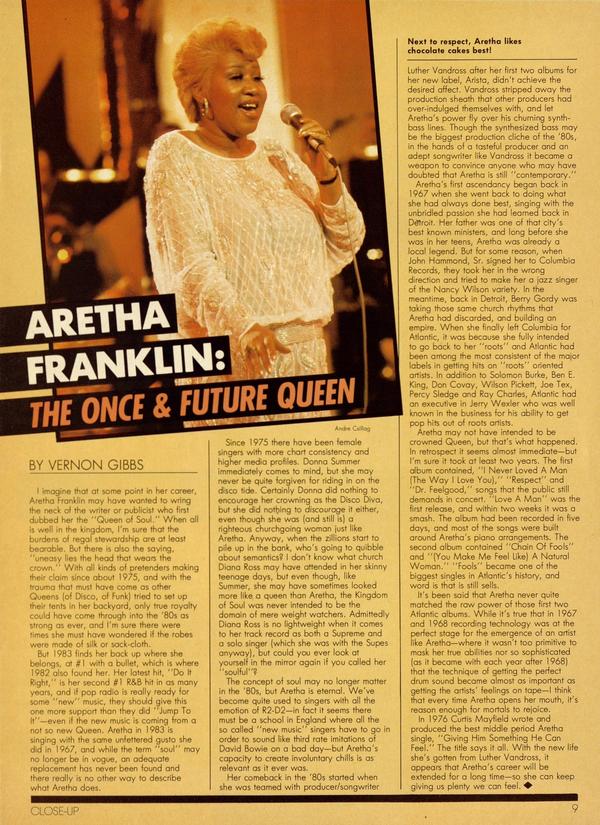
ARETHA FRANKLIN: THE ONCE & FUTURE QUEEN
VERNON GIBBS
I imagine that at some point in her career, Aretha Franklin may have wanted to wring the neck of the writer or publicist who first dubbed her the "Queen of Soul." When all is well in the kingdom, I'm sure that the burdens of regal stewardship are at least bearable.
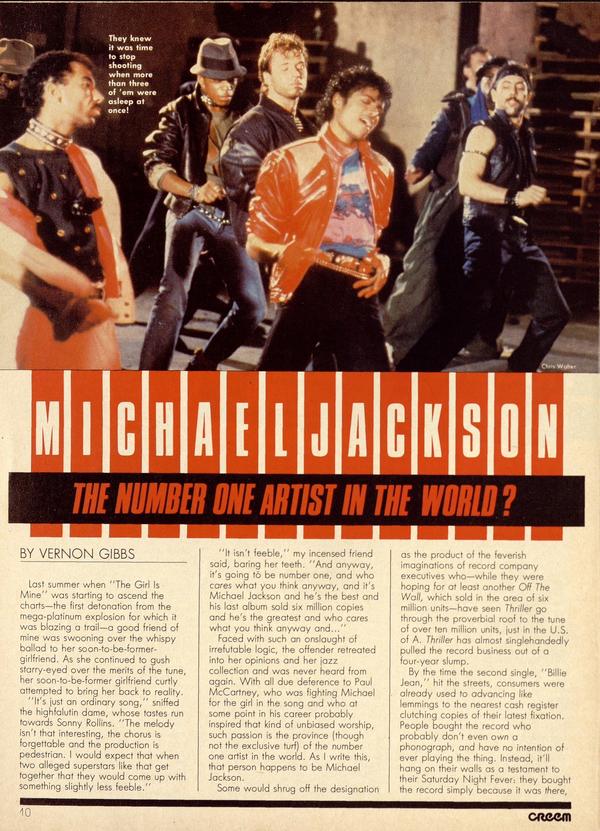
MICHAEL JACKSON THE NUMBER ONE ARTIST IN WORLD?
VERNON GIBBS
Last summer when "The Girl Is Mine" was starting to ascend the charts—the first detonation from the mega-platinum explosion for which it was blazing a trail—a good friend of mine was swooning over the whispy ballad to her soon-to-be-formergirlfriend.
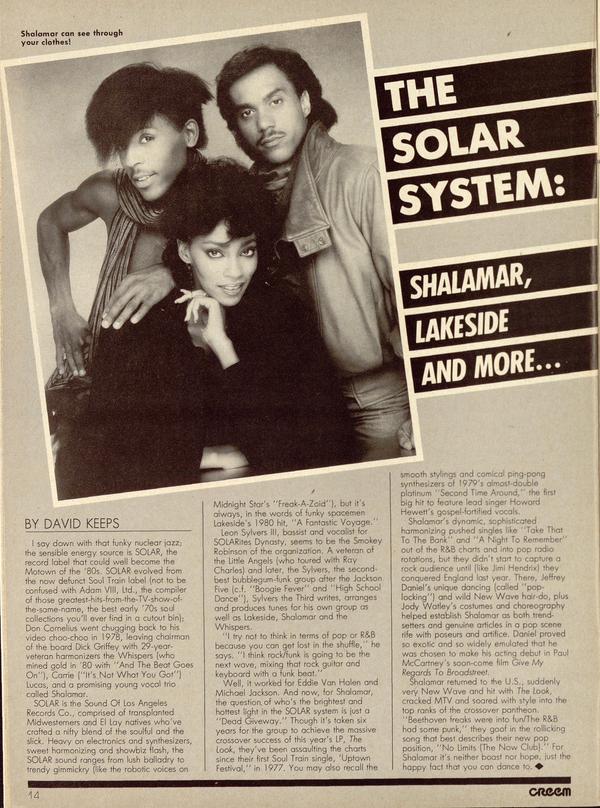
THE SOLAR SYSTEM: SHALAMAR, LAKESIDE AND MORE...
DAVID KEEPS
I say down with that funky nuclear jazz; the sensible energy source is SOLAR, the record label that could well become the Motown of the '80s. SOLAR evolved from the now defunct Sou! Train label (not to be confused with Adam VIII, Ltd., the compiler of those greatest-hits-from-the-TV-show-ofthe-same-name, the best early '70s soul collections you'll ever find in a cutout bin); Don Cornelius went chugging back to his video choo-choo in 1978, leaving chairman of the board Dick Griffey with 29-yearveteran harmonizers the Whispers (who mined gold in '80 with "And The Beat Goes On"), Carrie ("It's Not What You Got") Lucas, and a promising young vocal trio called Shalamar.
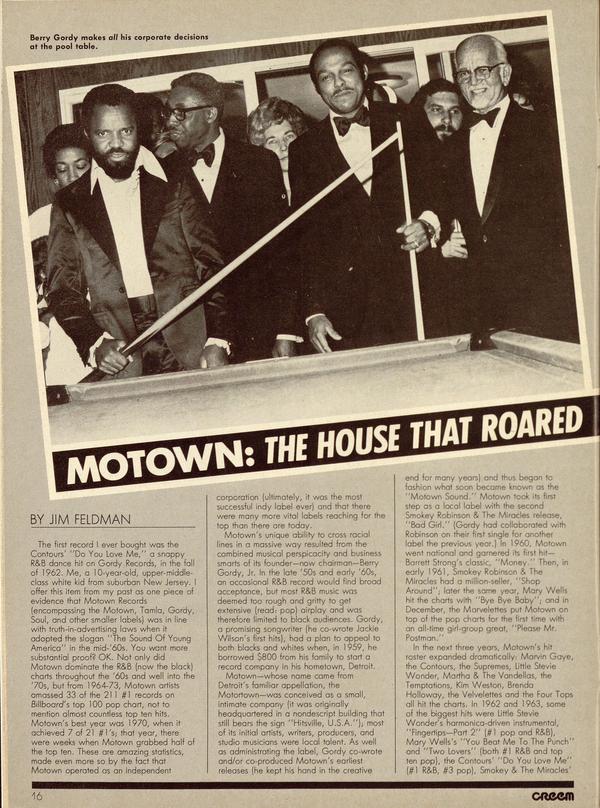
MOTOWN: THE HOUSE THAT ROARED
JIM FELDMAN
The first record I ever bought was the Contours' "Do You Love Me," a snappy R&B dance hit on Gordy Records, in the fall of 1962. Me, a 10-year-old, upper-middleclass white kid from suburban New Jersey. I offer this item from my past as one piece of evidence that Motown Records (encompassing the Motown, Tamla, Gordy, Soul, and other smaller labels) was in line with truth-in-advertising laws when it adopted the slogan "The Sound Of Young America" in the mid-'60s.
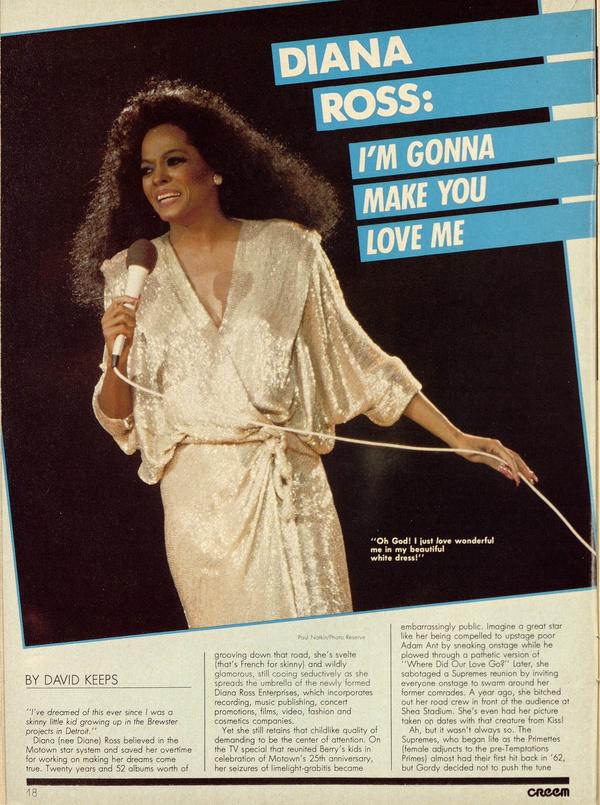
DIANA ROSS: I'M GONNA MAKE YOU LOVE ME
DAVID KEEPS
"I've dreamed of this ever since skinny little kid growing up in the Brewster projects in Detroit." Diana (nee Diane) Ross believed in the Motown star system and saved her overtime for working on making her dreams come true. Twenty years and 52 albums worth of grooving down that road, she's svelte (that's French for skinny) and wildly glamorous, still cooing seductively as she spreads the umbrella of the newly formed Diana Ross Enterprises, which incorporates recording, music publishing, concert promotions, films, video, fashion and cosmetics companies.
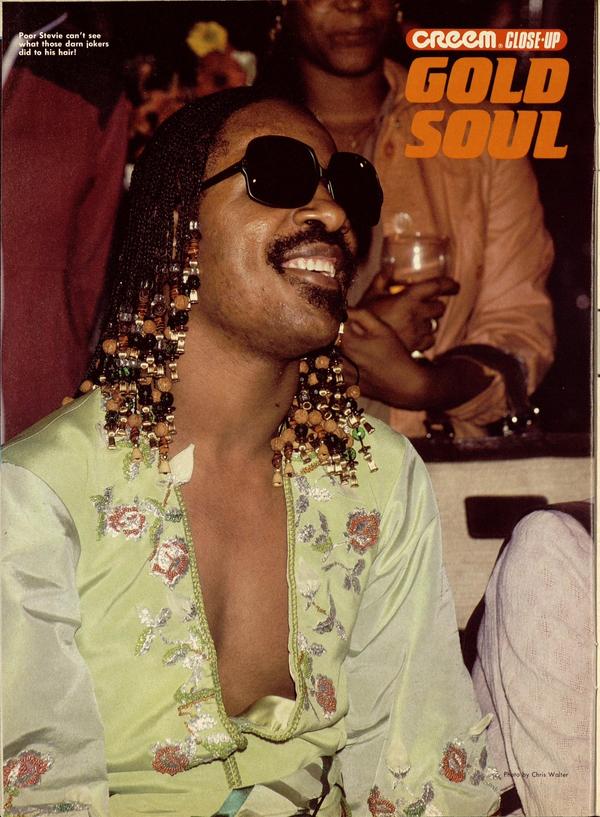
Stevie Wonder? Where To
CAROL COOPER
It truly began with Tonto's Expanding Headband.
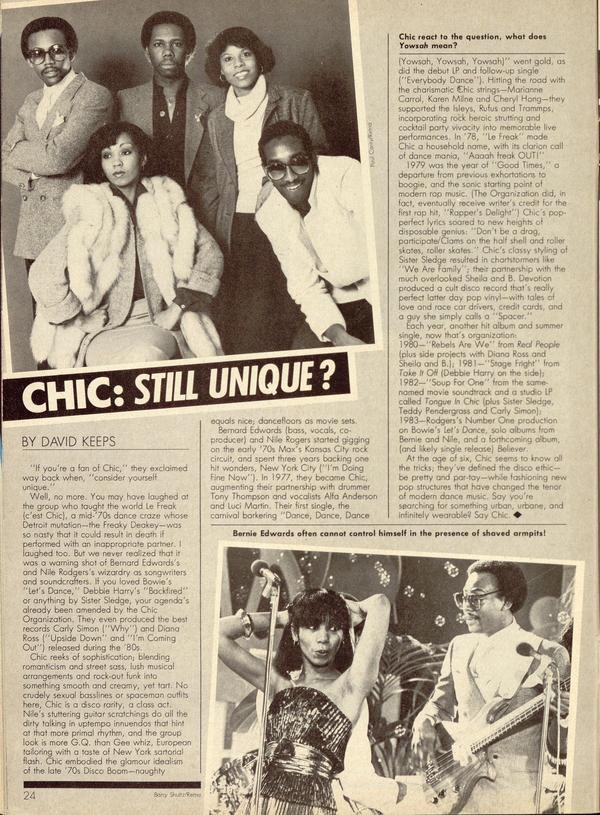
CHIC: STILL UNIQUE?
DAVID KEEPS
"If you're a fan of Chic," they exclaimed way back when, "consider yourself unique." Well, no more. You may have laughed at the group who taught the world Le Freak (c'est Chic), a mid-'70s dance craze whose Detroit mutation—the Freaky Deakey—was so nasty that it could result in death if performed with an inappropriate partner.
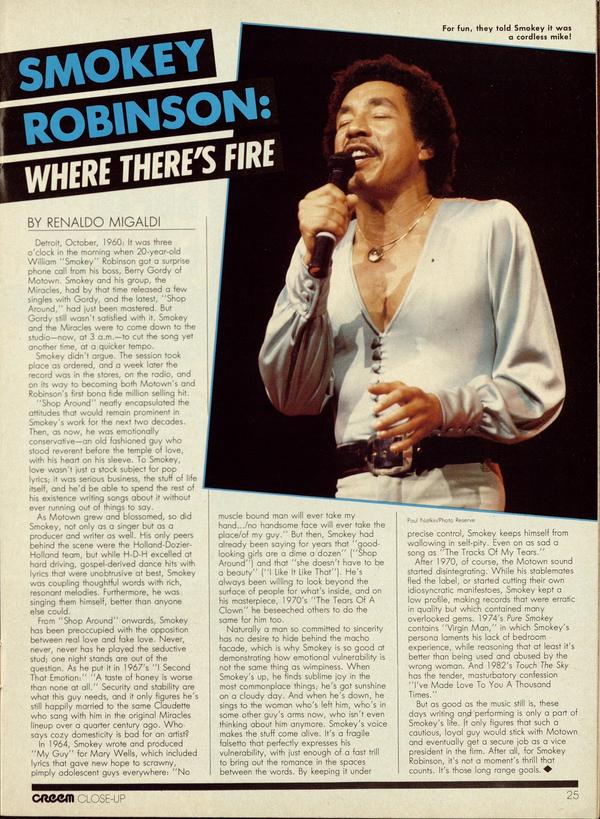
SMOKEY ROBINSON: WHERE THERE’S FIRE
RENALDO MIGALDI
Detroit, October, 1960: It was three o'clock in the morning when 20-year-old William "Smokey" Robinson got a surprise phone call from his boss, Berry Gordy of Motown.
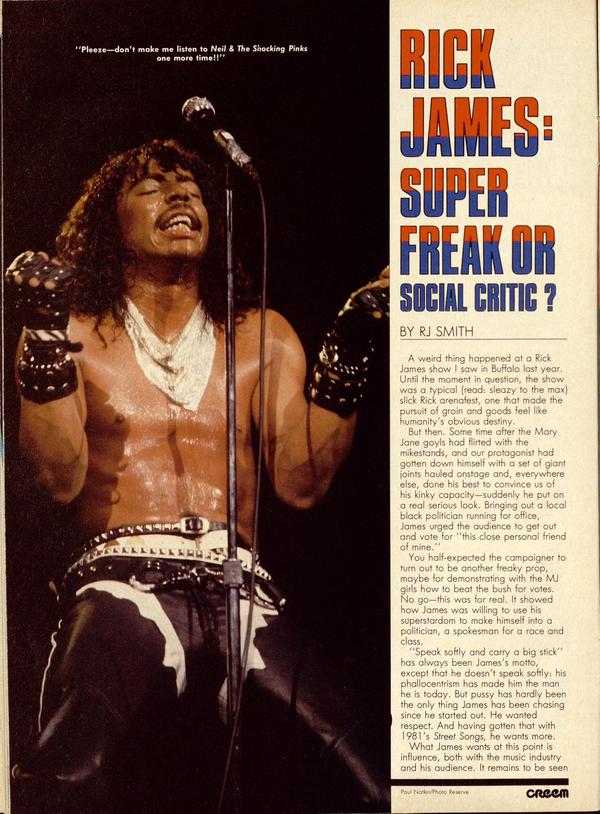
RICK JAMES: SUPER FREAK OR SOCIAL CRITIC?
RJ SMITH
A weird thing happened at a Rick James show I saw in Buffalo last year. Until the moment in question, the show was a typical (read: sleazy to the max) slick Rick arenafest, one that made the pursuit of groin and goods feel like humanity's obvious destiny.
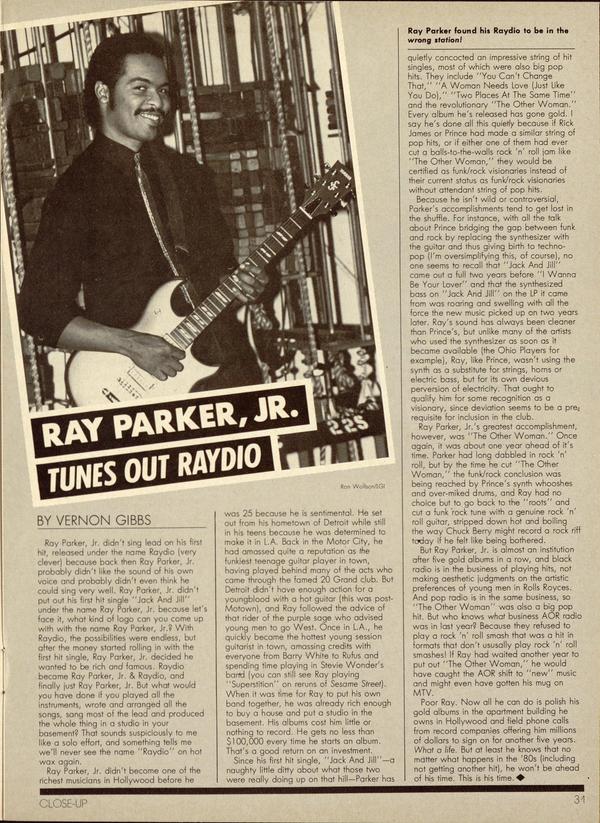
RAY PARKER, JR. TUNES OUT RAYDIO
VERNON GIBBS
Ray Parker, Jr. didn't sing lead on his first hit, released under the name Raydio (very clever) because back then Ray Parker, Jr. probably didn't like the sound of his own voice and probably didn't even think he could sing very well. Ray Parker, Jr. didn't put out his first hit single "Jack And Jill" under the name Ray Parker, Jr. because let's face it, what kind of logo can you come up with with the name Ray Parker, Jr.?
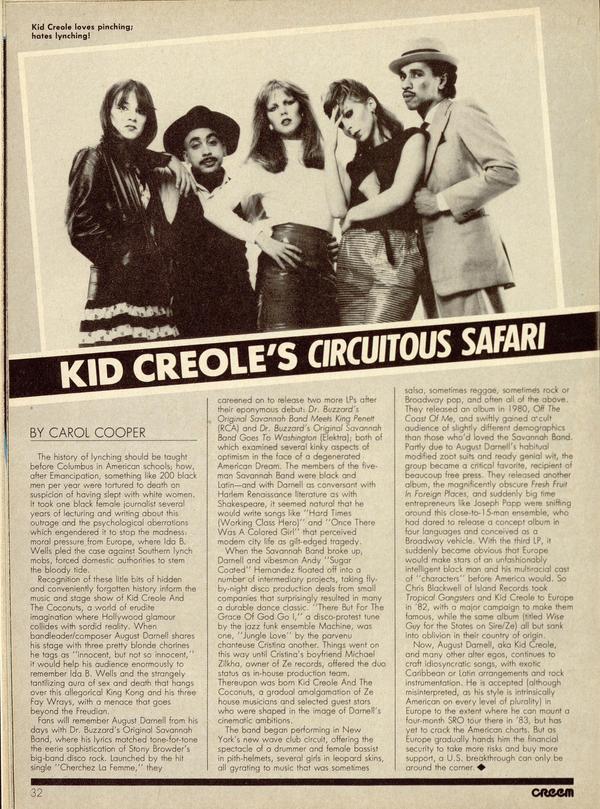
KID CREOLE’S CIRCUITOUS SAFARI
CAROL COOPER
The history of lynching should be taught before Columbus in American schools.
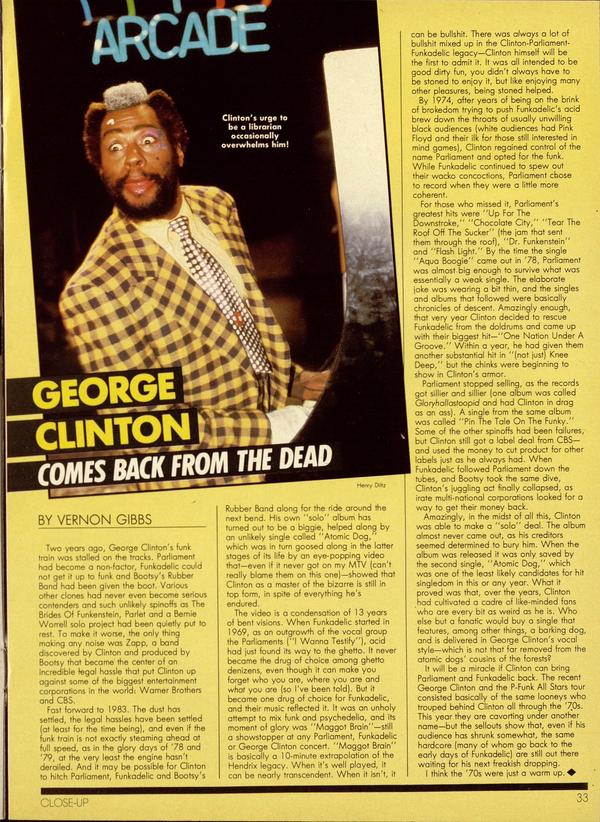
GEORGE CLINTON COMES BACK FROM THE DEAD
VERNON GIBBS
Two years ago, George Clinton's funk train was stalled on the tracks. Parliament had become a non-factor, Funkadelic could not get it up to funk and Bootsy's Rubber Band had been given the boot.
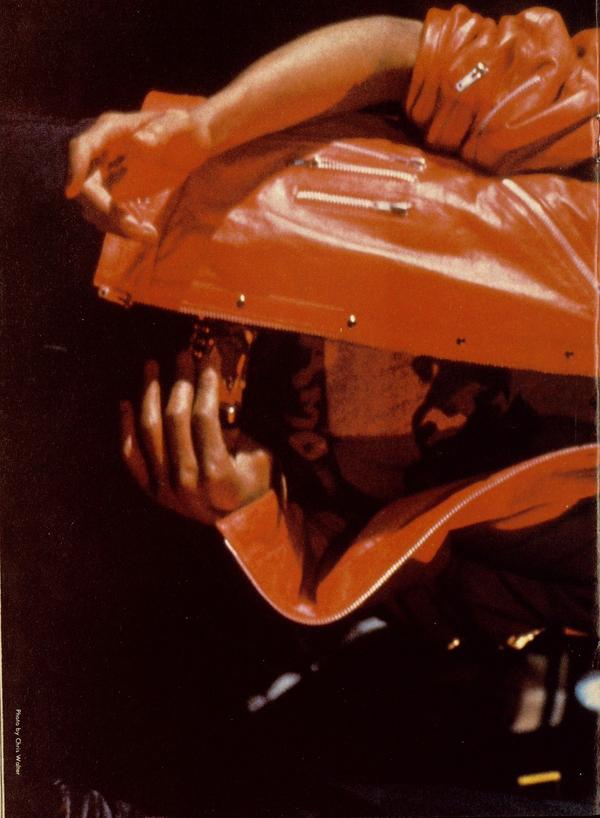
MICHAEL JACKSON
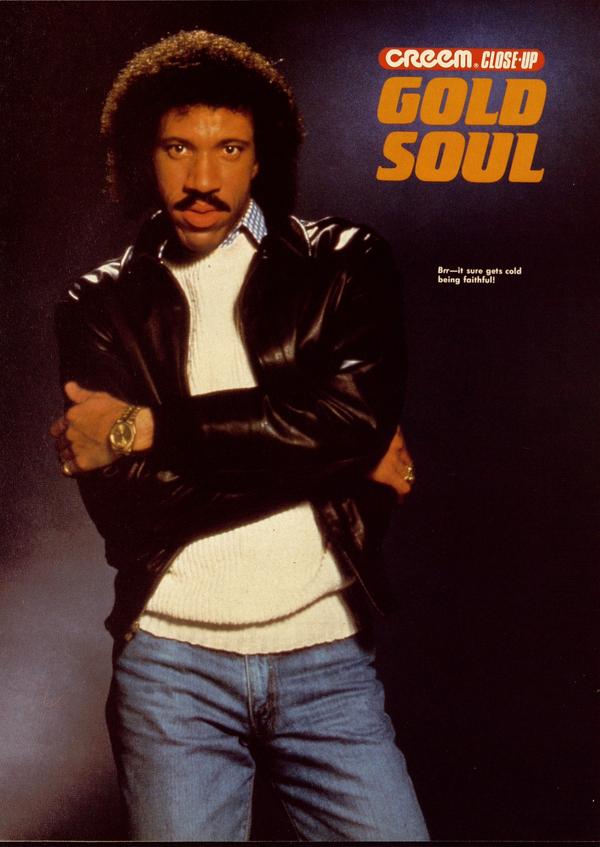
LIONEL RICHIE & THE COMMODORES: TOGETHER ALONE (NATURALLY)
DREW WHEELER
With a fiercely funkified beat, sinister guitar licks and an ebullient YAOWWWW!, the Commodores have remained one of the top names in black popular music. Guitarist Thomas McClary was a freshman at Alabama's Tuskegee Institute when he formed a party band called the Mystics.
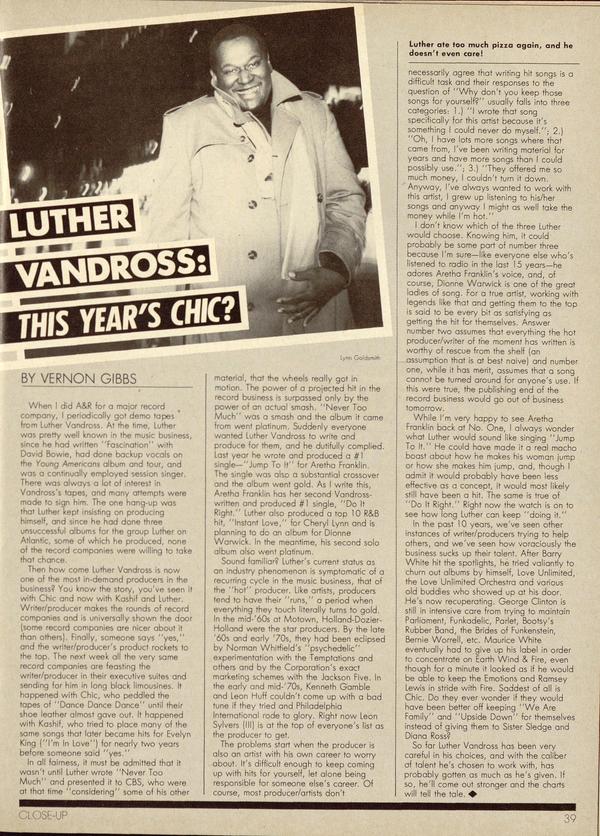
LUTHER VANDROSS: THIS YEAR’S CHIC?
VERNON GIBBS
When I did A&R for a major record company, I periodically got demo tapes from Luther Vandross.
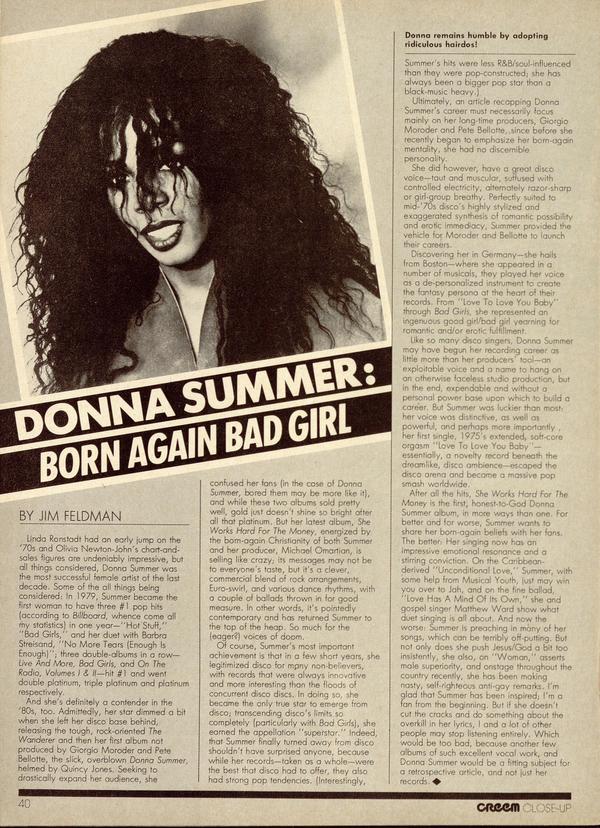
DONNA SUMMER: BORN AGAIN BAD GIRL
JIM FELDMAN
Linda Ronstadt had an early jump on the '70s and Olivia Newton-John's chart-andsales figures are undeniably impressive, but all things considered, Donna Summer was the most successful female artist of the last decade. Some of the all things being considered:
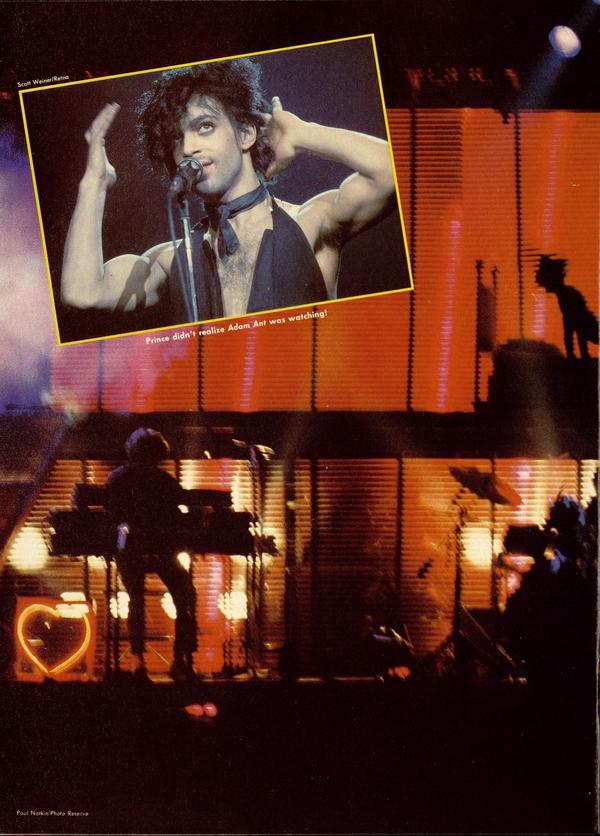
PRINCE: DIRTY MIND OR COLOR BLIND?
LAURA FISSINGER
Minneapolis/St. Paul, Minnesota: white. White is everywhere. The ground is white from October 'til April. Street after street strolls without hurry between rows of big old family houses, pointed white. The area's largest "ethnic group" is Scandinavian, so the white people in Minneapolis/St. Paul hope fairly white skin and fairly light hit which turns white in the summer.
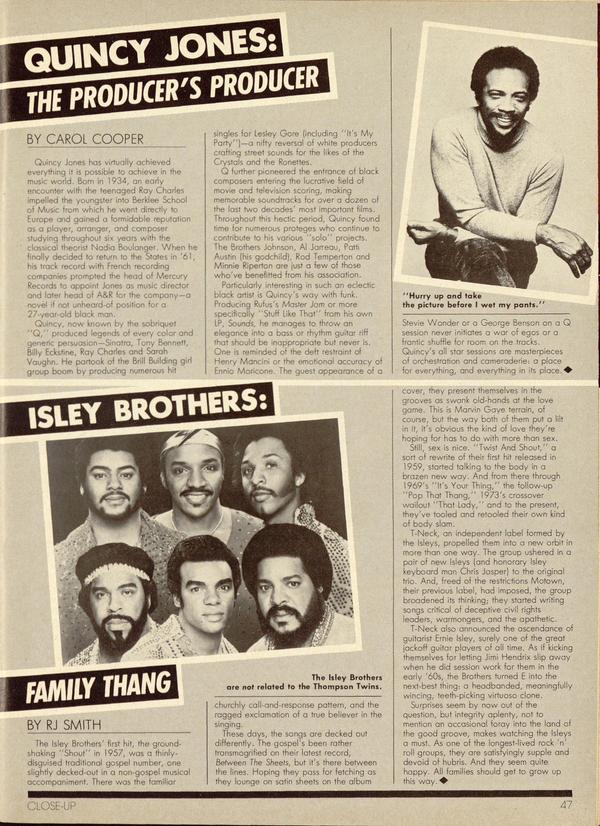
QUINCY JONES: THE PRODUCER'S PRODUCER
CAROL COOPER
Quincy Jones has virtually achieved everything it is possible to achieve in the music world. Born in 1934, an early encounter with the teenaged Ray Charles impelled the youngster into Berklee School of Music from which he went directly to Europe and gained a formidable reputation as a player, arranger, and composer studying throughout six years with the classical theorist Nadia Boulanger.

ISLEY BROTHERS: FAMILY THANG
RJ SMITH
The Isley Brothers' first hit, the groundshaking "Shout" in 1957, was a thinlydisguised traditional gospel number, one slightly decked-out in a non-gospel musical accompaniment. There was the familiar churchly call-and-response pattern, and the ragged exclamation of a true believer in the singing.
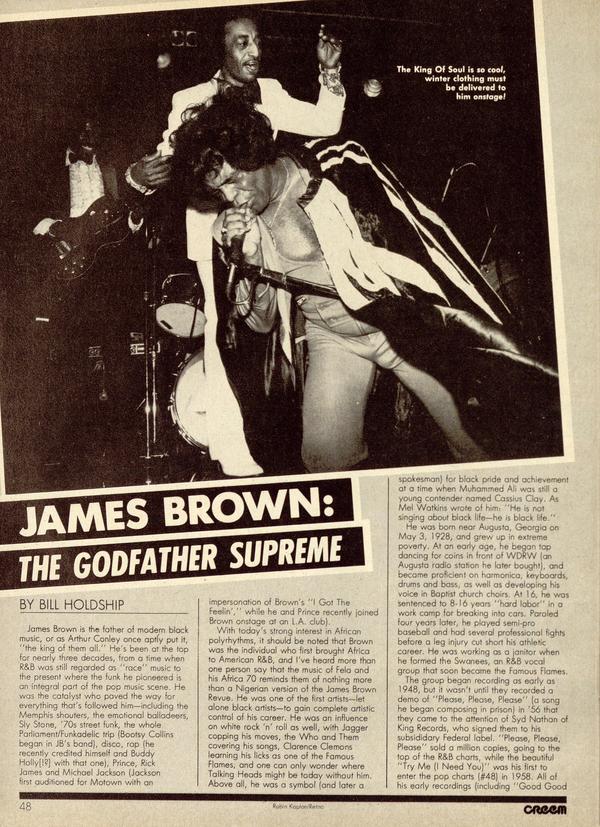
JAMES BROWN: THE GODFATHER SUPREME
BILL HOLDSHIP
James Brown is the father of modern black music, or as Arthur Conley once aptly put it, "the king of them all." He's been at the top for nearly three decades, from a time when R&B was still regarded as "race" music to the present where the funk he pioneered is an integral part of the pop music scene.
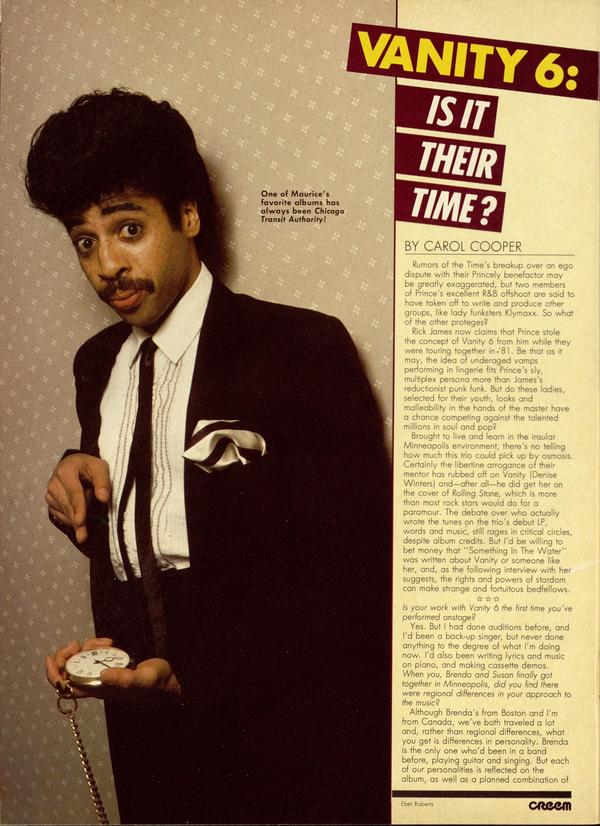
VANITY 6: IS IT THEIR TIME?
CAROL COOPER
Rumors of the Time's breakup over an ego dispute with their Princely benefactor may be greatly exaggerated, but two members of Prince's excellent R&B offshoot are said to have taken off to write and produce other groups, like lady funksters Klymaxx.
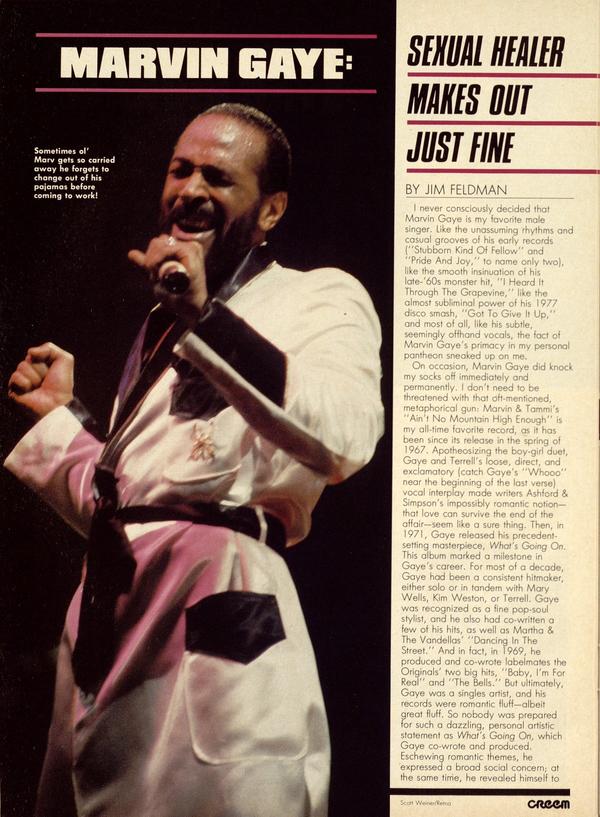
MARVIN GAYE: SEXUAL HEALER MAKES OUT JUST FINE
JIM FELDMAN
I never consciously decided that Marvin Gaye is my favorite male singer. Like the unassuming rhythms and casual grooves of his early records ("Stubborn Kind Of Fellow" and "Pride And Joy," to name only two), like the smooth insinuation of his late-'60s monster hit, "I Heard It Through The Grapevine," like the almost subliminal power of his 1977 disco smash, "Got To Give It Up," and most of all, like his subtle, seemingly offhand vocals, the fact of Marvin Gaye's primacy in my personal pantheon sneaked up on me.
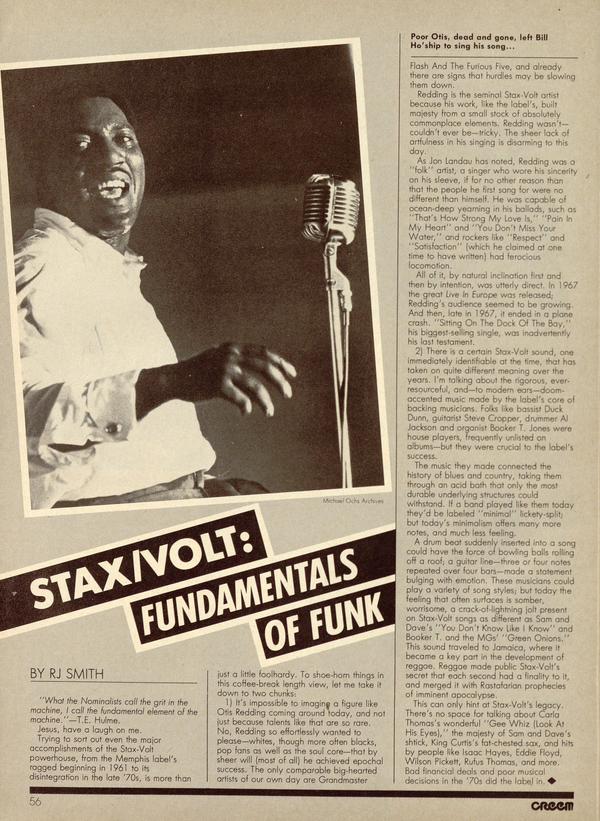
STAX-VOLT: FUNDAMENTALS OF FUNK
RJ SMITH
Trying to sort out even the major accomplishments of the Stax-Volt powerhouse is more than just a little foolhardy.
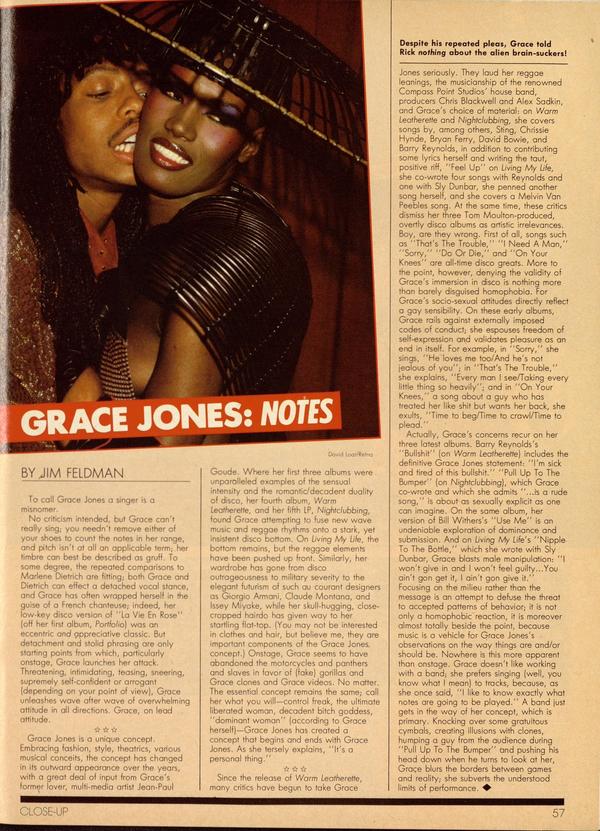
GRACE JONES: NOTES
JIM FELDMAN
To call Grace Jones a singer is a misnomer. No criticism intended, but Grace can't really sing; you needn't remove either of your shoes to count the notes in her range, and pitch isn't at all an applicable term; her timbre can best be described as gruff.
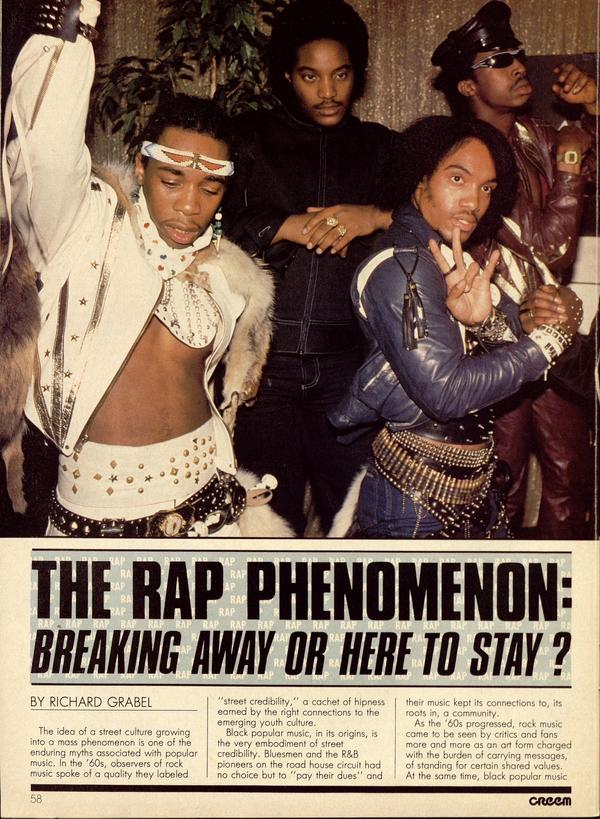
THE RAP PHENOMENON: BREAKING AWAY OR HERE TO STAY?
RICHARD GRABEL
The idea of a street culture growing into a mass phenomenon is one of the enduring myths associated with popular music.
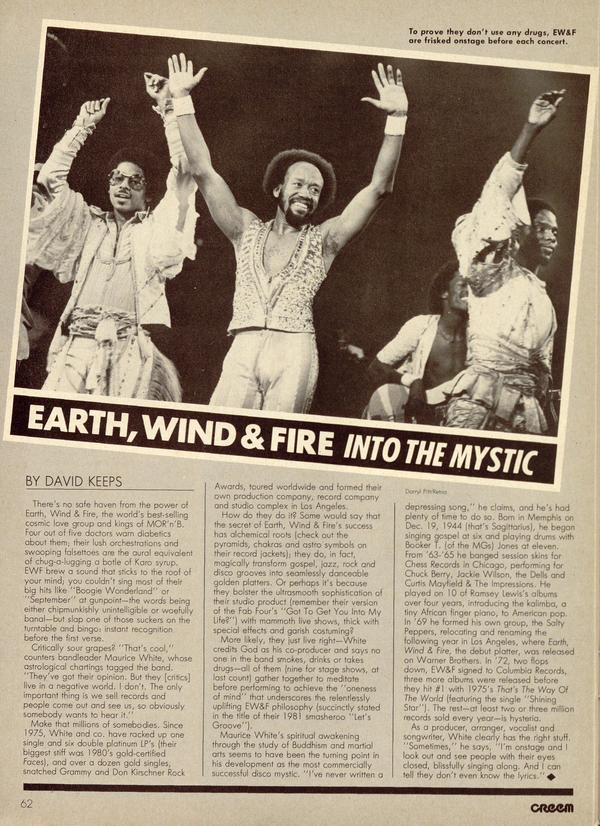
EARTH, WIND & FIRE INTO THE MYSTIC
DAVID KEEPS
There's no safe haven from the power of Earth, Wind & Fire, the world's best-selling cosmic love group and kings of MOR'n'B. Four out of five doctors warn diabetics about them; their lush orchestrations and swooping falsettoes are the aural equivalent of chug-a-lugging a botle of Karo syrup.


